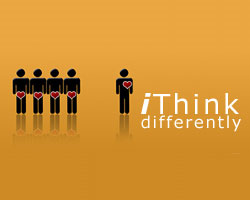by Kenneth Lin, MD
by Kenneth Lin, MD
Yesterday, the family medicine residency program where I serve as a faculty preceptor “went live” with their new electronic health record. They posted a sign at the front desk that read in part: “Pardon Our Progress,” as if we were starting a major construction project — which, in a way, we were. Instead of wading through stacks of unruly paper charts, my colleagues and I logged on to a sleek online portal via laptop computers to review and sign residents’ progress notes. Thanks to months of meticulous preparation and the presence of onsite technical support, the day went relatively smoothly for physicians and patients.
By leaving paper behind, we looked forward to eliminating inconvenience and errors associated with lost charts and illegible or missing documentation. But the most important reason for the switch to an electronic health record was the unspoken presumption that it would allow us to provide better preventive and chronic care for patients. At the end of the afternoon session, I asked the residents how strong the evidence is that practices with electronic health records actually improve their quality of care.
The answer, it turns out, is not very strong at all. In an editorial published in the May 15 issue of American Family Physician, I review the small number of studies that have evaluated the effect of electronic clinical decision support systems (CDSSs) on processes and outcomes of preventive care. Whether the goal was to improve immunization or behavioral counseling rates, electronic health records have had, at best, modest effects:
In summary, the evidence is far from conclusive that EHRs and CDSSs improve preventive care processes and outcomes in primary care settings. The small number of mostly nonrandomized studies makes it hard to determine whether changes in physicians’ behaviors were the result of implementing CDSSs, or if other factors were responsible. Also, the most promising studies to date were performed in large practices of employed physicians, rather than in small physician-owned practices. Finally, all but a few studies measured only guideline adherence, rather than patient-oriented health outcomes. To be worth the investment, EHR-enabled CDSSs must ultimately be shown to not only improve processes of preventive care, but also reduce morbidity and mortality and improve quality of life.
Similarly, a study published in this month’s issue of the Annals of Family Medicine found that in a group of 42 similar primary care practices in the Northeast, those using EHRs were less likely than those without EHRs to meet three diabetes care quality measures (hemoglobin A1c, LDL cholesterol, and blood pressure), and that the gap did not narrow after 3 years.
So what are the chances that our residency’s substantial investment (and the U.S. government’s billions of dollars of incentives for physicians and hospitals to install and demonstrate “meaningful use” of electronic health records) will ultimately pay off for patients? The key to success for integrated health systems such as Kaiser Permanente and the Mayo Clinic has been to use the data from EHRs to manage population health. Rather than the traditional model of treating diabetes one patient at a time, for example, “panel managers” (registered nurses or other non-physician health professionals) can reach out to patients outside of the office visit and make sure that they are receiving recommended care. Who will pay these managers outside of the Kaisers and Mayo Clinics remains a largely unanswered question. The bottom line, though, is that it’s not enough to just collect electronic data. For EHRs to transform primary care, we need to be able to use the data in new and creative ways, improving the health of large groups of patients — and eventually, entire communities — at the same time.
—Kenneth Lin, MD, is a board-certified family physician practicing in the Washington, DC, area. He is Associate Deputy Editor of the journal American Family Physician and teaches family and preventive medicine at the Georgetown University School of Medicine, Uniformed Services University of the Health Sciences, and the Johns Hopkins University Bloomberg School of Public Health. He blogs at http://commonsensemd.blogspot.com.








